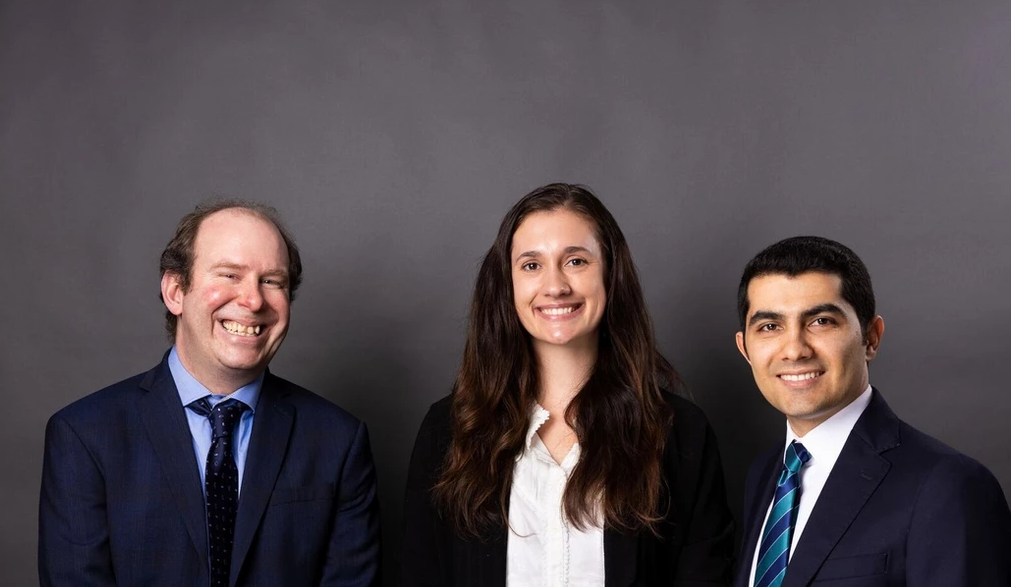With less than 10% of the 400 million tonnes of plastic produced annually being recycled, DePoly's universal chemical recycling process holds immense promise. By converting plastics into raw materials without compromising quality, the company aims to address the global plastic waste crisis and establish a sustainable circular plastic economy. BASF Venture Capital and Wingman Ventures co-led the oversubscribed funding round, with participation from prominent industry players.
The deep tech company DePoly is announcing a CHF 12.3 million seed funding round today to scale the solution the global consumer packaging and textile world has been longing for decades—its universal chemical recycling process converting plastics into raw materials without affecting their quality. The oversubscribed funding round was co-led by BASF Venture Capital and Wingman Ventures, with the participation of Beiersdorf, Infinity Recycling, CIECH Ventures, Zürcher Kantonalbank, Angel Invest, ACE & Company, and others.
Plastics like polyethylene terephthalate (PET) can be found in many of our daily items, such as clothing, packaging, and outdoor equipment. Unfortunately, the high costs and difficulty required for sorting, separating, and cleaning these complex plastic streams, coupled with a lack of globally scaled solutions, mean that only so-called perfect (clean, simple composition without other materials mixed) plastics get recycled. DePoly aims to tackle the entire waste plastic problem with its chemical recycling technology. Currently, it converts all PET plastics and polyester textiles—originally sourced from fossil fuels—back into their main raw chemical components. Those components are then sold back to the industry to make new virgin-quality plastic items, creating a truly sustainable circular plastic economy.
 DePoly's Co-founders. From left to right: Christopher Ireland (CSO), Samantha Anderson (CEO), and Bardiya Valizadeh (CTO)
DePoly's Co-founders. From left to right: Christopher Ireland (CSO), Samantha Anderson (CEO), and Bardiya Valizadeh (CTO)
The globally unique chemical recycling technology developed by DePoly operates at room temperature and standard pressure and does not require any pre-washing, pre-sorting, pre-melting, or separating out other plastics or materials, unlike most of the technologies out there. Ultimately, it can uniquely deal with PET and polyester streams typically turned down by the conventional recycling system, such as those containing mixed plastics, mixed colors, dirty plastic waste streams, as well as fabrics and fibers. The technology is energy efficient, can be implemented quickly, and is easy to tailor to a customer's specific needs.

Samantha Anderson, CEO and co-founder of DePoly said, “Plastics are a part of our lives and an existential dilemma facing us all. The plastic market isn’t slowing down, as it’s currently growing at a yearly rate of 5% CAGR and is estimated to be worth over $500B. We believe that to tackle this problem effectively, a simple, scalable solution is required that can treat difficult plastic streams. By recycling pre- / post-consumer and post-industrial plastics that otherwise would be sent to incineration centers or be landfilled, we at DePoly aim to eliminate plastic waste and create a sustainable source of chemicals by diverting this waste from our environment and lowering our carbon footprint up to 65% at the same time. The raw materials produced match that of their fossil-fuel-based equivalents, meaning customers no longer have to choose between PET quality and its sustainability.”
"The Venturelab programs provided us with a solid foundation of mentors, coaches, and a network that helped us scale and grow the company through its different stages. We're extremely appreciative of them, their hard work, and everything they do for the Swiss startup community," added Samantha Anderson, CEO of DePoly.
DePoly won Venture Kick Stage 2 in 2019 and was ranked in the TOP 100 Swiss Startup Award from 2020 to 2022.
DePoly SA: Closing the loop on PET plastic recycling
Every year 56 M tonnes of PET plastic is produced, but only 9% is recycled. This is largely due to the fact that for PET plastic to be recycled it needs to be clean, sorted, and can't be mixed with ot... Read more







